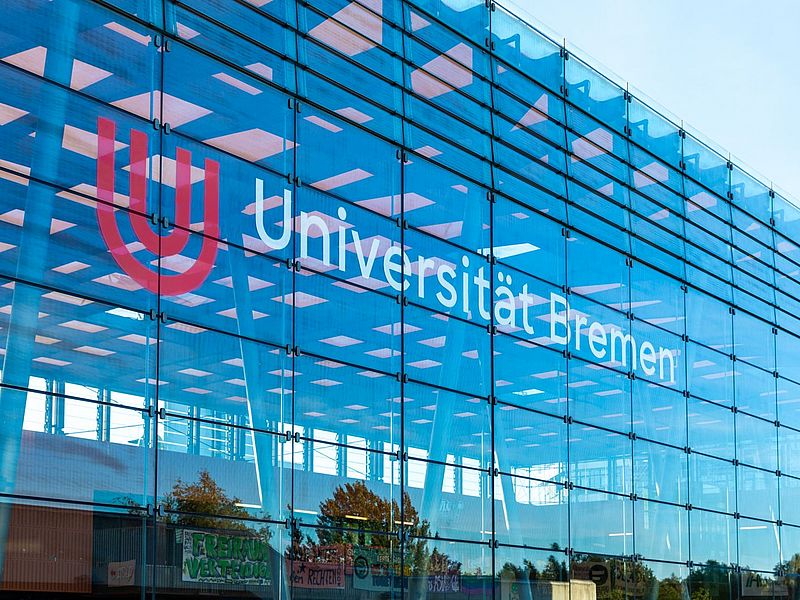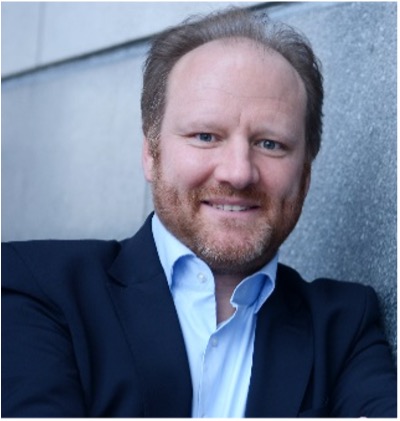AI Pioneers Conference
AI and the Future of Education
Monday, September 22 to Tuesday September 23, 2025
On the Central Campus of the University of Bremen, building GW2
Conference Topics
The focus is on current research findings, ethical issues,
new skills requirements, practical application examples and international networking opportunities for researchers, adult education specialists and vocational education and training professionals.
Key questions:
- What research gaps exist regarding the use of AI in VET and adult education?
- Which theoretical approaches are relevant for transfer into practice?
- What best-practice models already demonstrate added value?
- Which key competencies are needed in AI-influenced work environments?
Why you should join:
Interdisciplinary inspiration: Bridging the gap between academic research and educational practice – for a holistic view on AI in learning
Practical insights:
Discover real-world applications you can directly implement in teaching, training, and organizational development
Networking:
Connect with professionals, researchers, and project leaders from across Europe and exchange ideas on shared challenges and solutions

Program
Here you can find the current status of the programme. Please note that we may still make changes for organisational reasons.
Registration
- Registration via Eventbrite:
http://unihb.eu/aipioneers - Thanks to EU funding, participation is free of charge
- The number of participants is limited
- Please have your online ticket ready on the conference day!
Perspectives of the Conference
We warmly invite you to the international AI conference “AI Pioneers – AI and the Future of Education”, taking place on 22–23 September 2025
at the University of Bremen, building GW2.
This event brings together teachers, trainers, researchers and other stakeholders from vocational education and training (VET) and adult education to explore the opportunities and challenges of Artificial Intelligence (AI) in education.
The conference is organised within the framework of the Erasmus+ funded project AI Pioneers (aipioneers.org).
For the academic community, the conference provides an opportunity to present and discuss the latest research findings and theoretical developments in the field of AI in adult and vocational education. Key topics include international studies, emerging competence requirements in the age of AI, and ethical evaluation frameworks.
For practitioners, the focus is on concrete use cases and best-practice models. Learn how AI tools are already supporting learning processes today, how schools and training institutions are integrating AI into their teaching practices, and what skills educators and learners will need in the near future. In practical sessions and networking formats, you can exchange ideas and initiate new (international) collaborations. Secure your spot today and register now!
Conference Location
- The Conference will take place at the
University of Bremen in the building GW2 - Here you will find direction information



Hotel Recommendation
- Hotel Motel One Bremen, Am Brill 10, 28195 Bremen
- ibis budget Bremen City Center, Bahnhofsplatz 41b, 28159 Bremen
- 7THINGS – Hotel & Apartment, Universitätsallee 4, 28359 Bremen
- Maritim Hotel Bremen, Hollerallee 99, 28215 Bremen
Conference Dinner
- September 22, 2025 will take place at the Bremer Ratskeller, Am Markt, 28195 Bremen
- Start is 07:30 pm
- You can register for the dinner until August 18, 2025
- Each person is responsible for the cost of the menu
- Registration Link: https://app.kulibri.com/pr/gN2J96Q6epb9/7Kgm7KgmyeGjRmMP

Keynote Speeches
Marco Kalz is full professor of educational technology and Chief Information Officer at the Heidelberg University of Education. His research—positioned at the intersection of educational science, computer science and psychology—focuses on open education, pervasive technologies and formative assessment to foster lifelong learning and knowledge construction, addressing global societal challenges such as energy conservation, marine litter reduction, resuscitation support and cancer education. Marco has authored more than 150 peer-reviewed publications, and delivered over 60 keynote speeches worldwide. He serves as Associate Editor of the International Journal of Artificial Intelligence in Education and is editorial board member of the Journal of Computing in Higher Education. His advisory work spans European and global organisations, including the International Labour Organization, the United Nations Environment Programme, the European Commission and UNESCO, supporting educational innovation and digital transformation initiatives. Keynote Topic: Upskilling, Deskilling and Skillflation. A critical reflection on the AI skills discourse and implications for VET education

Prof. Dr. Marco Kalz
Stefan Dietl is Head of Global Vocational Training at the Festo Group in Esslingen. His work lies at the intersection of vocational training, business and international human resources development. In his role, he designs global strategies and programmes for the qualification of skilled workers in industrial contexts, drawing on over 25 years of experience in vocational training. After training as a retail salesman and studying business administration, he studied economics and vocational education as well as leadership skills at the University of Landau. His expertise lies in particular in the design and implementation of international training initiatives, strategic human resources development and the promotion of innovation in vocational training. Stefan is an active member of numerous expert committees and boards, including the VDMA Education Committee, the Baden-Württemberg Chamber of Industry and Commerce Vocational Training Committee, the BERACOM Innovation Advisory Board and the Innovation Committee in Shenyang (China). As a licensed DISG trainer, he also contributes in-depth knowledge of personality diagnostics and communication training. Stefan is committed to future-oriented, globally networked vocational training that addresses the challenges of digitalisation, skills shortages and sustainable transformation. With his commitment, he supports international initiatives for the further development of vocational training systems – from California to China. Keynote Topic: How AI Is Transforming Dual Vocational Training – Insights from Apprenticeship Training at FESTO

Stefan Dietl
Karsten D. Wolf is a full Professor of ‚Media Education – Didactic Design of Multimedia Learning Environments‘ at Faculty 12 Educational Sciences at the University of Bremen. He heads the ‚Media & Education‘ lab at the Centre for Media, Communication and Information Research (http://zemki.uni-bremen.de/lab-medien-und-bildung/). From 2005 to 2011, he held a junior professorship for the research area of the same name at the University of Bremen and was previously a research assistant in the Business Education group at University of Bamberg and in the Vocation Education and Training group at University of Gießen. He completed his doctorate in educational sciences on the subject of „Design and Implementation of an Internet-based Learning Environment to Support Self-Organized Learning“. In current research projects, his group is working on the use of multimodal AI to generate highly informative feedback (e.g., in ePortfolios), on AI appropriation at schools, on analyzing audiovisual learning cultures on YouTube, TikTok & Co., on digital diagnostics in vocational basic education, and on learning processes in gaming communities.

Prof. Dr. Karsten D. Wolf
Andreas Breiter has been Professor of Applied Computer Science at Faculty 3 (Mathematics and Computer Science) at the University of Bremen since July 2008. He heads the ‚Socio-technical systems and critical data studies‘ lab at the Centre for Media, Communication and Information Research (https://zemki.uni-bremen.de/en/lab-soziotechnische-systeme-und-kritische-datenstudien/lab-socio-technical-systems-and-critical-data-studies/). He is also head of the Institute for Information Management Bremen GmbH, a non-profit research and consulting institute at the University of Bremen funded by the state of Bremen. From 2004 to 2008, he held a junior professorship for the research area of the same name at the University of Bremen and was previously a research assistant in the Telecommunications Research Group at the University of Bremen for four years. In 2002, he was a visiting scholar at Columbia University in New York and at the Center for Children and Technology. After studying sociology, computer science and law at the J.W.-Goethe University in Frankfurt am Main and at the University of Southhampton, he was a research assistant at the Fraunhofer Institute for Systems and Innovation Research in Karlsruhe (1995-1997). He then moved to the University of Bremen as a research assistant (1997-2000) and completed his doctorate in applied computer science on the subject of “IT management in schools”. His main research interests are datafication and digital transformation of educational institutions (media skills, e-learning, AI support, organizational development); IT governance, information security management, and IT service management; as well as user-centric information infrastructures. Keynote Topic Karsten D. Wolf & Andreas Breiter: Fostering Deep Learning Through Formative Feedback with AI: Toward a Learning Dialogue in VET

Prof. Dr. Andreas Breiter
„We want AI to be a force for good. We want an AI where everyone collaborates and everyone benefits. This is our path. This is our European path.“
Ursula von der Leyen
President of the European Commission, Paris AI Summit 2025
AI Pioneers Project
The AI-Pioneers Project – a cross-sector Ersamus + project – under the Partnership for Innovation promote the use and teaching of artificial intelligence (AI) in adult and vocational education and traing (VET).
The project is being funded as part of the ‘Future Project’ funding priority „Forward-looking-project“. The main aim of the AI-Pioneers Project is to establish an European-wide Network of AI Pioneers in vocational and adult education.
A total of 10 project partners from the 7 different European countries Germany, Greece, Portugal, Italy, Spain, Estonia and Cyprus are involved.

Join AI Pioneers Network with 923+ followers on LinkedIn
Keep up to date with everything and exchange ideas with us.
Conference Organiser
Dr. Christine Siemer
Institute Technology and Education (ITB), University of Bremen &
AI Pioneers Project Team
Contact
If you have any questions, please email aipion@uni-bremen.de
Funded by the European Union. Views and opinions expressed are however those of the author(s) only and do not necessarily reflect those of the European Union or the European Education and Culture Executive Agency (EACEA). Neither the European Union nor EACEA can be held responsible for them.


